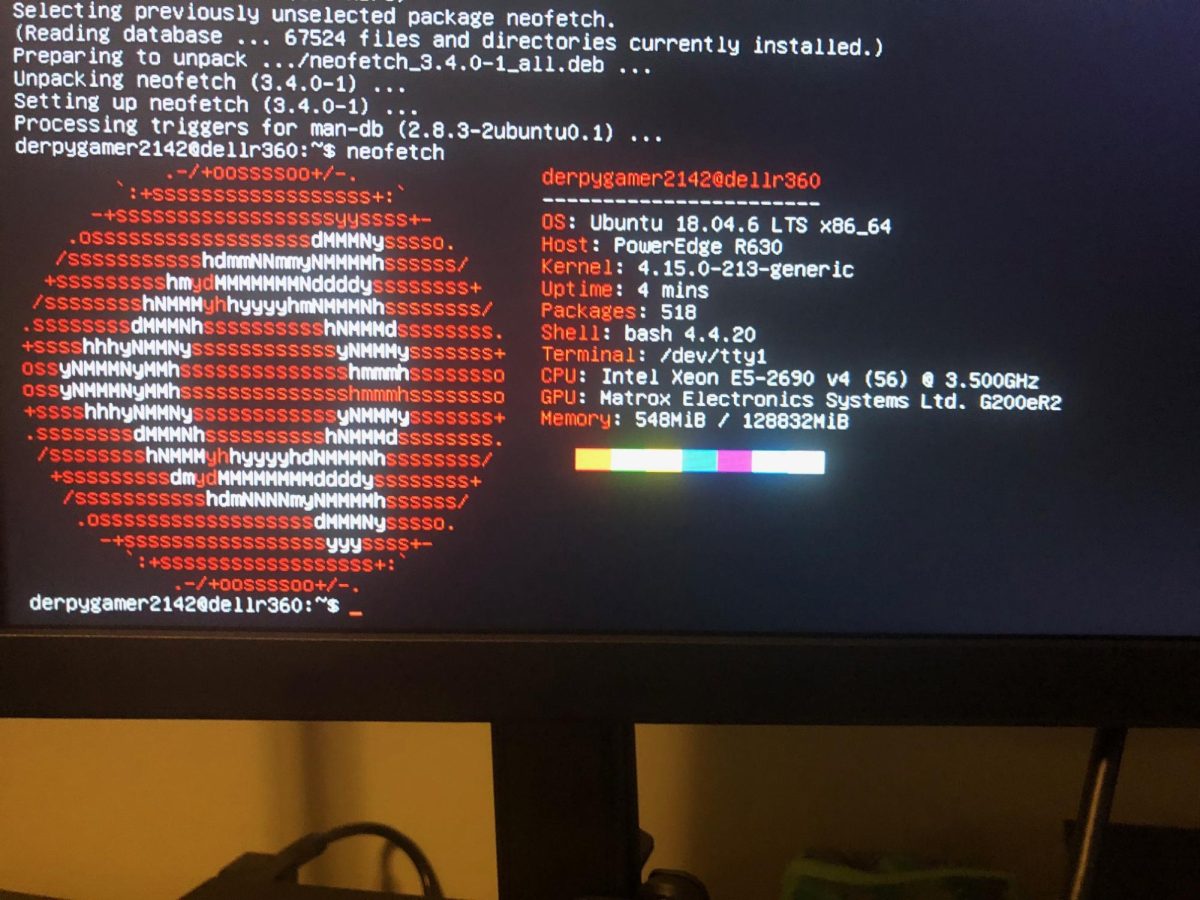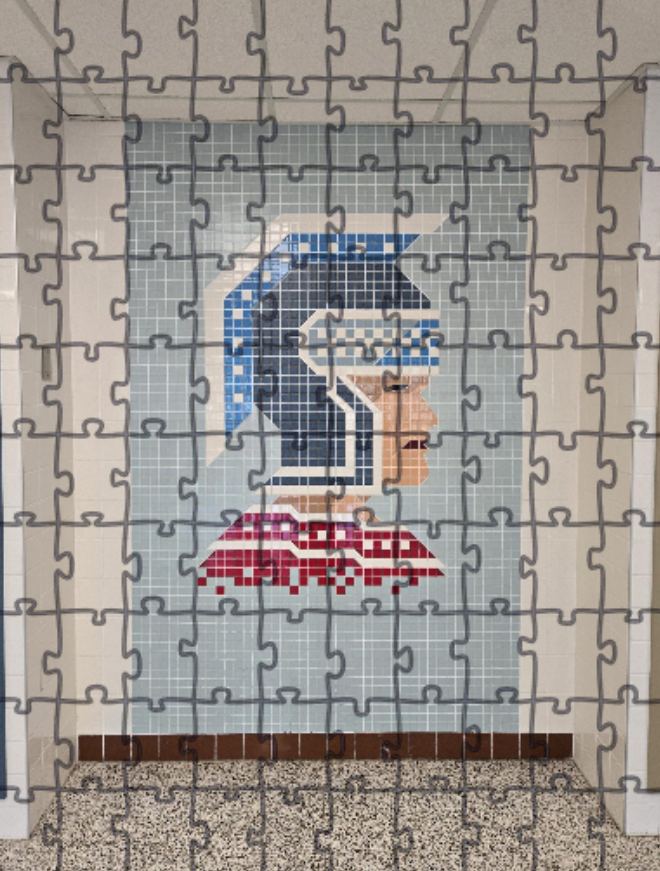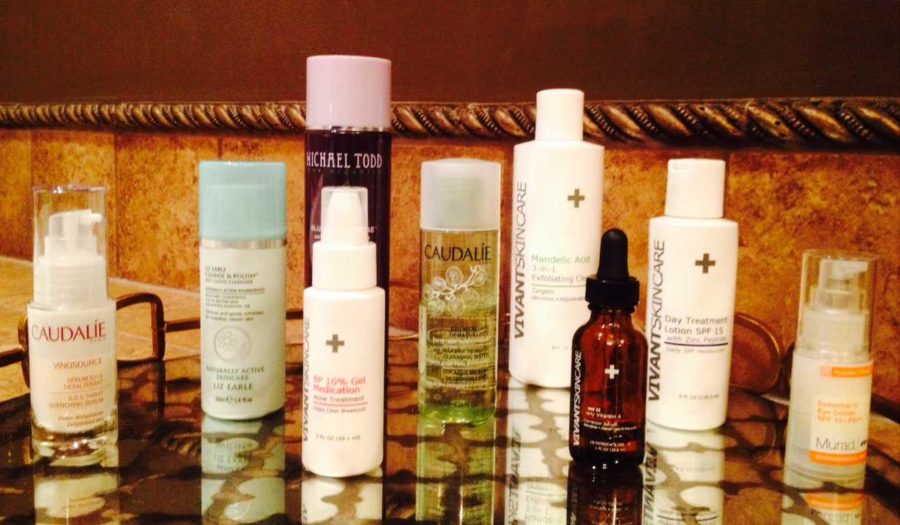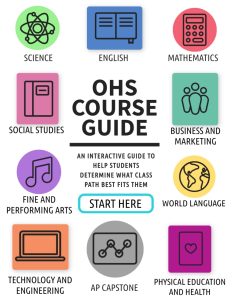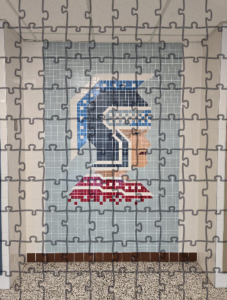Techniques to keep teenage skin acne-free
February 13, 2014
For most teenagers, facial acne is a constant struggle associated with growing up.
Due to the influx of hormones that come along with puberty, the leading group of people suffering from acne include teenagers and young adults. However, acne can affect any age group.
According to the Mayo Clinic, acne is caused when pores are clogged with dead skin cells. When the skin is oily, pores become sticky and dead skin cells become trapped. Sometimes bacteria on the skin can become trapped inside the pore as well, causing inflammation.
There are three main types of acne. The first is comedonal, which is non-inflammatory and arises in the form of blackheads and whiteheads. The second is inflammatory, which arises in the form of pink bumps. Then there is cystic acne, which is often the most painful kind that can lead to scarring.
Although acne vulgaris is technically a skin disease, it can often be treated without any assistance from a doctor. According to the American Academy of Dermatology, one of leading causes of teenage acne is hormones, especially for females. However, there are other factors such as genetics, skin care habits, medication, diet and stress that can trigger it.
“Removing greasy foods from my diet did help prevent acne breakouts,” senior Claire Mayhew said, who has struggled with acne throughout her high school years.
Senior Kenzie Shofner has also struggled with acne, and her best advice is to, “Wash your face every day.” Even though she herself has never seen a dermatologist for her acne, she said that, “If your acne makes you self-conscious, see someone about it.”
Senior Amanda Thies says her best advice to prevent breakouts is, “If you have oily skin, change your pillowcase often.”
Depending on the level of severity, there are two types of professionals a person can see for help in preventing and treating acne: a dermatologist and an aesthetician.
When acne cannot be prevented by regular face-washing, reduced stress levels, and avoiding certain foods, a person can seek the help of a dermatologist.
“It’s best to start treatment at early comedonal stage to prevent progression and possible scarring,” Heidi Foster, M.D. said, a dermatologist at Skin Care Doctors, which is the closest dermatology clinic to Orono High School.
Unlike an aesthetician, a dermatologist is able to prescribe acne medication, which is needed in some cases to control acne and prevent scarring and progression of cystic acne. When acne is less severe or a person is incompatible with oral medication, a dermatologist can prescribe a retinoid cream or gel, which is a concentrated Vitamin A.
However, seeing an aesthetician is also beneficial for the maintenance and prevention of acne-prone skin. Aestheticians can safely extract plugged pores with minimal damage to the skin and also can provide chemical peels, which are sometimes the best exfoliant when the skin is inflamed.
“Light chemical peels and extractions can help,” Foster said.
A consultation with an aesthetician may provide insight on a person’s particular condition, and can point in the direction of a dermatologist if they believe the case is severe enough or fast results are needed.
“I help mainly through educating my clients on their skin and their acne by pairing the right products and treatments with their condition,” aesthetician Cassie Fehlen, of Skin + Makeup, said.
Fehlen also provided insight on what she believes is the best prevention and treatment for most grades of acne. “Exfoliation is both the treatment and the prevention because it prompts your skin cells to purge.”
There are two different types of exfoliation. The first is manual, which are the beads in a face scrub. This is best for acne at the comedonal stage. The second is chemical, which is best for inflamed acne but often only available from a licensed aesthetician.
Apart from treating acne with regular washing, minimizing stress, and avoiding food that triggers acne, there are some ingredients to avoid when buying skin care products. Two common ones are isopropyl myristate and isopropyl palmitate because they are drying irritating to the skin. It is also good to avoid pomades in hair products and oil-based makeup if you are acne-prone.
For teens whose self-esteem is lowered by facial acne, it’s important to remember that this skin disorder is also caused by genetics and hormones, and therefore is sometimes inevitable. Nearly 85 percent of people suffer from acne vulgaris at some point in their life.







































